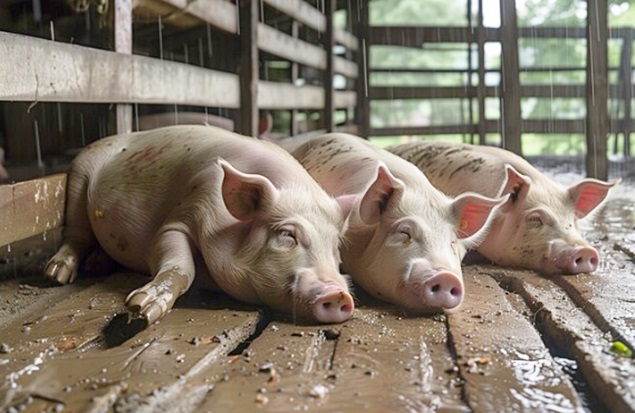1199

Phytogenics: The Growing Role of Plant-Based Compounds in Pig Production
In a recent article published by PigProgress.com, researchers and animal nutrition experts emphasized the increasing importance of phytogenic compounds in pig farming.
The Power of Plants
These natural substances—extracted from plants and including essential oils, botanical extracts, and spices—not only support animal health but also play a significant role in enhancing the sustainability of the production chain.
At a time when agriculture faces mounting pressure to deliver both economic efficiency and ecological responsibility, phytogenics appear to offer a vital bridge between high performance and environmental stewardship.
From Plants to Measurable Results
In today’s modern pig farms, efficiency is no longer defined solely by rapid growth and low costs. Meat quality, gut health, and reduced antibiotic use are increasingly recognized as key success factors.
This is where phytogenics come into play—a diverse family of plant-derived natural compounds from aromatic or medicinal herbs that can influence digestion, immunity, and even animal behavior.
Producers who have incorporated phytogenics into pig diets often report more efficient feed conversion, lower mortality rates, and improved herd vitality.
For example, essential oils from thyme, cloves, or cinnamon can reduce oxidative stress and help regulate gut flora, directly enhancing nutrient absorption. And when animals digest better, they grow faster—a simple but crucial relationship for the future of farming.
Sustainability Through Nature
Beyond direct performance benefits, phytogenics also offer considerable environmental advantages. By improving digestion and protein absorption, they help reduce nitrogen emissions—a critical factor amid increasingly strict EU agricultural pollution regulations.
Moreover, the use of these natural additives allows for a reduction in antibiotic dependency, contributing to the fight against antimicrobial resistance—a global issue with serious implications for human health.
Many farms that have transitioned to phytogenic-based nutritional programs have observed fewer gastrointestinal illnesses, reducing the need for preventive medications. This leads not only to cost savings for farmers but also to cleaner meat for consumers and a less polluted environment.
An Adaptable Solution
Another major advantage of phytogenics is their flexibility. They can be tailored to fit customized nutritional strategies across different growth phases and climatic conditions. During weaning, when piglets’ digestive systems are particularly vulnerable, specific compounds can help stabilize intestinal flora.
Later, in the fattening phase, other extracts can promote feed efficiency and lower metabolic stress. This adaptability makes phytogenics far more than a niche solution for organic farms—they are a powerful tool in modern livestock management.
Challenges and Future Outlook
Of course, the use of phytogenics is not without challenges. The variability in plant composition—depending on soil, climate, or processing—can affect their effectiveness. Furthermore, in the absence of clear and unified regulation, the market is sometimes flooded with substandard products.
Nevertheless, scientific progress is encouraging. Recent studies are focusing on extract standardization and identifying synergistic combinations of natural compounds, paving the way for increasingly predictable and effective formulations.
Phytogenics as a Strategic Investment
Phytogenics are not a universal cure-all, but they are rapidly becoming an essential piece in the sustainable pig production puzzle. They offer a balanced path between the drive for economic performance and the need to reduce environmental impact.





